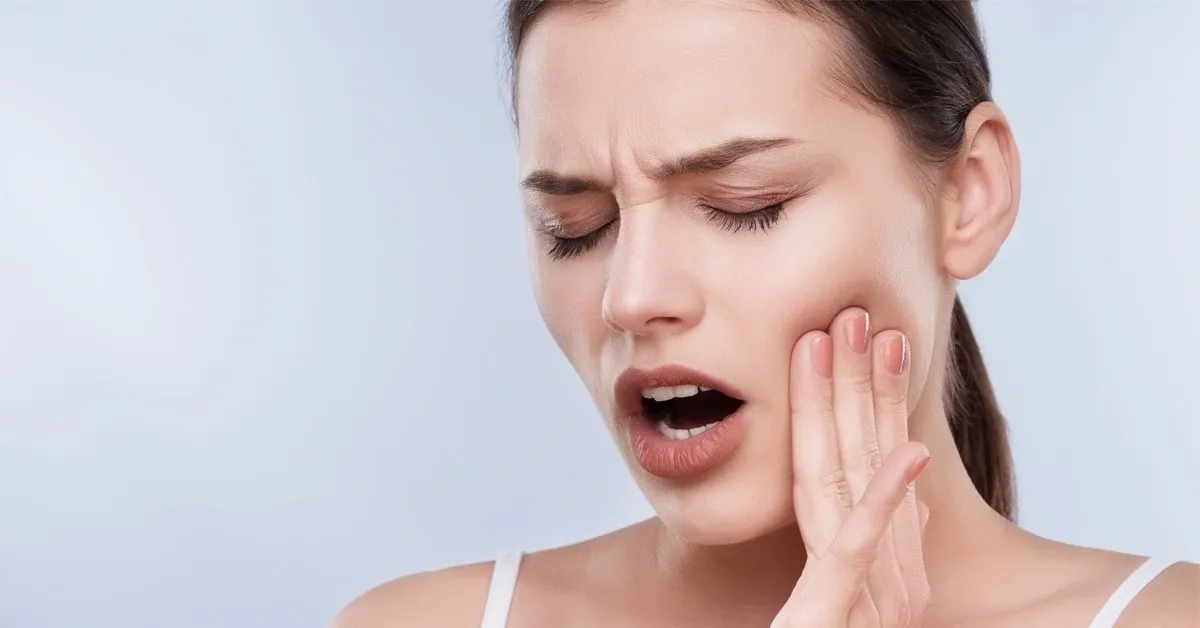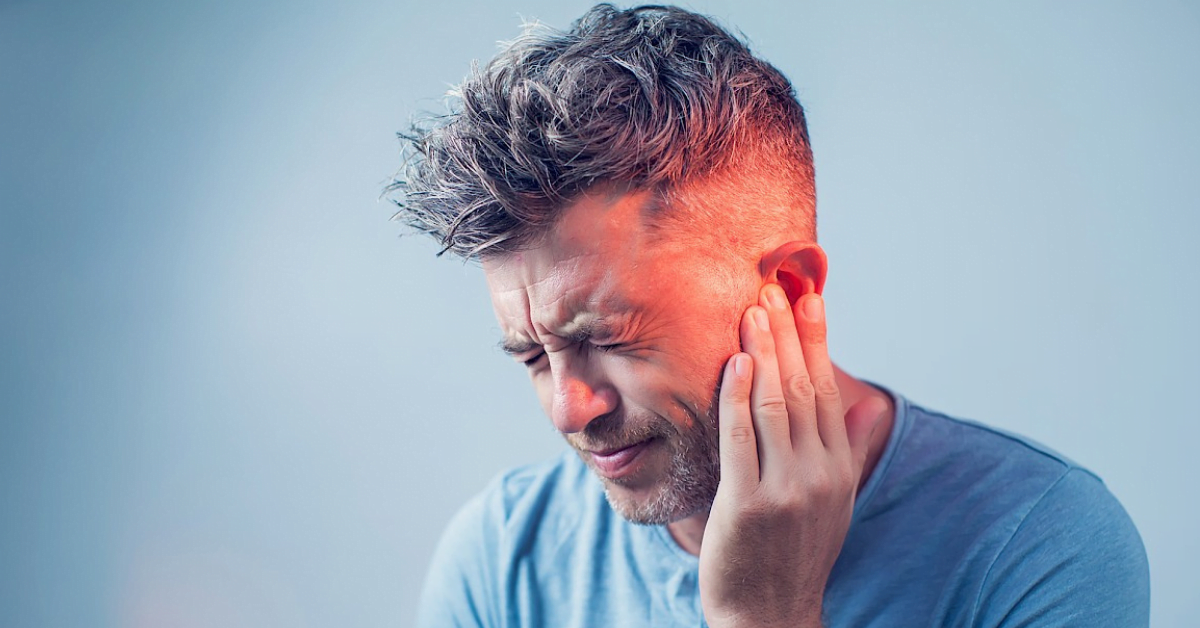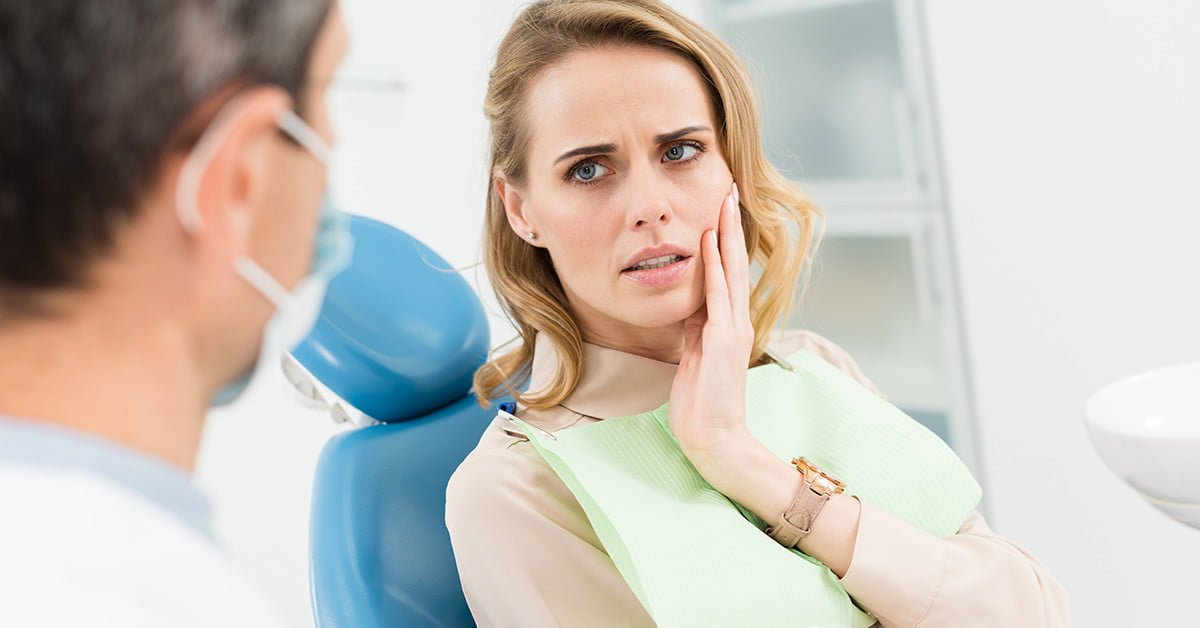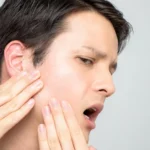Tooth and Ear Pain: The Unexpected Connection You Need to Know About!
This essay aims to take a closer look at the relationship between two seemingly unrelated ailments such as tooth and ear pain and how they are directly related if not by the same nerves then by similarities. It covers many conditions that cause one or the other type of pain like sinusitis, TMJ, and a dental abscess. Possible methods of calking the tooth and the ear include using generic drugs, getting prescribed particular medications, and using natural remedies. To minimize the risk of pain, practices such as good oral hygiene, managing stress, etc are encouraged and recommended. The severity of getting medical care at the right time by emphasizing not to delay and get complications in the long run.
Introduction
Oral and auditory or rather toothache and earache diseases are two diseases that can make a drastic difference in your life. Though it may sound paradoxical, these two types of pain are quite related most of the time. Knee and joint pains may be caused by different conditions and may have similar symptoms as well as treatment hence it is important to know how to treat knee pain and joint pain to avoid experiencing the discomfort in the future. As you may appreciate, teeth and ears share an interesting connection, at least where the pain is concerned, and this article will explain why this is so while also describing what may be done to ease such discomfort.
Understanding Tooth Pain
Teeth ache is a varying condition it can be as mild as a dull ache or as severe as a sharp pain which hinders one from eating, talking, or even focusing. Any problem right from a cavity to gum disease can lead to toothache. Here are some common causes: Here are some common causes:
- Cavities: Small access or breaks in the outer surface of your teeth caused by dental caries.
- Gum Disease: Gingival involvement causes pain and swelling of the gums.
- Tooth Abscess: A collection of pus in part of the body due to the presence of bacteria.
- Tooth Fracture: In terms of functionality, a split or chipped tooth means nerve endings are open to the elements and therefore painful.
Symptoms associated with tooth pain
The general features of toothache are tenderness and sharp or throbbing pain, often about hot or cold food and beverages, as well as swellings around the area of the infected tooth. Tooth pain can be classified into different types, such as Tooth pain can be classified into different types, such as:
- Sharp Pain: Founds with caries or tooth crack.
- Throbbing Pain: It is related to a tooth abscess or gum disease quite often.
- Sensitivity: A typical indicator of a wear down of the enamel or a pullback of the gums.

Understanding Ear Pain
Otalgia or ear pain can be primary or referred from different structures; its causes may be infectious, traumatic, and more. Just as with tooth pain, it may be ticklish or intense, and hearing may also become impaired. Common causes of ear pain include: Common causes of ear pain include:
- Ear Infections: Infections of the outer ear, middle ear, or the inner ear.
- Earwax Buildup: Earwax buildup can lead to blockage, infection, itch, and ultimately pain if not undone.
- Eustachian Tube Dysfunction: When the phonetic tube that runs from the moment to the ear is closed.
- Trauma: SH Injury to the ear due to loud sounds, pressure variations, or objects in the ear.
Symptoms associated with ear pain
Earache has such symptoms as pain in the ear, fullness, hearing impairment, and dizziness. Ear pain can also be classified into different types: Ear pain can also be classified into different types:
- Dull Pain: Generally due to accumulation of earwax or a slight infection.
- Sharp Pain: Most commonly as a result of a major bacterial infection or an injury.
- Throbbing Pain: Still widely linked to middle ear infections.

Pain in the ear and tooth – the connection
Tooth and ear pain share the relation that the nerves that are responsible for both areas are interlinked. The trigeminal nerve which is one of the largest nerves in the face is involved in the sensation of the teeth and also of the ear. If your teeth misbehave, they can feel like they’re sending a signal to your ear, and the opposite is also true.
Tooth Pain Causing Ear Pain
Toothache pain could be sharp and shooting or it could be a throbbing pain and often a case of a decayed molar would find the pain spreading towards the ear. This is because the nerves serving the jaw region are in proximity to those in the ear, and activities in the former can affect the latter.
Ear Pain Causing Tooth Pain
One also gets to realize that in some circumstances, an ear infection may produce referred pain to the teeth most notably to any of the upper molars.
The key nerve pathways that link the ear and teeth include:
- Trigeminal Nerve: This nerve carries the sensation that occurs on the teeth, face, and ear.
- Facial Nerve: It acts on muscles of facial expression as well as on earache and toothache.
Medications Used To Treat Tooth and Ear Pain about Common Conditions
Other medical conditions will make a patient present with toothache and or earache. These conditions include:
- Sinus Infections
- Temporomandibular Joint Disorder (TMJ)
- Dental Abscesses
- Bruxism (Teeth Grinding)
- Impacted Wisdom Teeth
The role of knowing these conditions is that they can bring about great discomfort and you can then seek treatment for them.
Sinus Infections and Tooth/Ear Pain
Sinus infections and tooth/ear pain are two diseases that sometimes go hand in hand While sinus infections cause severe pain in the facial area, tooth/ear can also cause headaches.
Sinus infection, also known by the name of sinusitis, occurs,r when the sinuses get swollen usually by the influence of a cold or an allergy. This inflammation can exert pressure on the upper teeth and the ears thus causing pains in both the areas.
- Symptoms of Sinus Infections: These are Facial pain, nasal congestion, thick mucus, and ear pressure.
- How Sinus Infections Cause Pain: This became evident since the sinuses are close to the upper teeth and ears, thus representing the referred pain zones.
Treatment options for sinus-related tooth and ear pain
- Over-the-counter decongestants: Used to help lower the inflammation in the sinuses.
- Nasal sprays: May help reduce demand stress.
- Steam inhalation: Alleviate the condition of the sinus and decrease pain.
- Hydration: Fluid intake helps in the thinning of mucus and reduces congestion which is known to worsen when one is dehydrated.
Temporomandibular joint disorder and pain
TMJ disorder affects the joint that is in the skull and the jaw. If this joint is not in order, then it leads to aching of the jaw which in most cases is transferred to the teeth and ears.
- What is TMJ? TMJ is the general term given to a set of disorders that lead to discomfort and impaired use of the jaw and the muscles that control its movement.
- Symptoms of TMJ: It comprehends jawache, crepitus, or grating sensation when shifting the jaw and bite dysfunction.
How TMJ Leads to Tooth and Ear Pain
- Tooth Pain: The angle of the jaw with another can cause pressure within the teeth that may lead to aches.
- Ear Pain: There seems to be a close relationship between the temporomandibular joint and the ear canal, therefore, any problem with the temporomandibular joint will trigger ear pain.
Treatment options for TMJ include
- Physical therapy: Æopractical exercises that can help to build down muscles Show more.
- Medications: Nonsteroidal anti-inflammatory drugs or muscle relaxants.
- Mouthguards: To reduce teeth grinding at night:
- Surgery: In more advanced cases, some form of surgical intervention may be called for to rectify the state of the joint.
Dental Abscesses and the associated pain
Dental abscess refers to a collection of pus that may develop inside the tooth roots consequent to a bacterial infection. This condition may result in intense toothache and in the worst case of spread may lead to earache.
- What is a Dental Abscess? The common cause of an abscess is the failure to treat a cavity or other forms of gum disease and the crack or chip in the tooth through which bacteria can penetrate further into the tooth.
- Symptoms of a Dental Abscess: This shall encompass toothache, acting up, swelling on the face, fever, and bad taste in the mouth.
How a Dental Abscess Can Affect the Ear
- Tooth Pain: The severity of the pain from the abscess can be felt radiating to the ear area.
- Ear Pain: The treatment of the infection involves inflammation that occurs within the ear if the infection expands.
Treatment options for a dental abscess
- Antibiotics: For the treatment of this infection.
- Root Canal Treatment: For extraction of the infected tissue from the tooth.
- Tooth Extraction: If the situation is very serious then the tooth itself might have to be pulled out.
- Pain Relievers: For the management of pain in the treatment of the infection.
Relationship of Bruxism with Tooth and Ear Pain
One such condition is bruxism or teeth grinding, which results tooth to tooth-to-tooth contact and can cause extensive wear and tear in your teeth and even lead to tooth and earache.
- What is Bruxism? Bruxism is a dental condition, that consists of grinding or clenching of the teeth, and it may happen during the night the patient is unaware of it.
- How Teeth Grinding Affects Both the Teeth and Ears:
- Tooth Pain: Repetition causes the tooth enamel to eraser and this causes sensitive teeth and sometimes pain.
- Ear Pain: Couvade syndrome: A woman’s pressure on the jaw can reach the ears and cause her to complain of a headache.
Managing and Treating Bruxism
- Mouthguards: It is a dental guard that is used when at night to protect the teeth.
- Stress Management: This is because the condition is often associated with stress and thus management of stress helps.
- Dental Treatment: There are instances when individuals may require the services of a dentist to fix one or more of his/her teeth.
- Medications: Night grind may also be managed by using muscle relaxants to calm down the muscles during nighttime.
Diagnosis of Tooth and Ear Pain
The diagnosis of the cause of the problem when a patient is complaining of tooth and ear pain may be quite a tough task since the pain is referred. Here’s how healthcare professionals approach it: Here’s how healthcare professionals approach it:
- Differentiating Between Tooth and Ear Pain: Health practitioners such as doctors or dentists will; physically examine the patient and order several tests to establish the origin of the discomfort.
- Diagnostic Tools and Methods: Such may include:
- X-rays: To detect conditions such as cavities, abscesses, or even periodontal disease.
- CT Scans or MRIs: To check sinus cavities or temporomandibular joint.
- Audiometry Tests: Audiometry and tympanometry: This test is used to assess the functioning of the ears and also to check one’s ability to hear.
Treatment for Toothache
There are several approaches to treating tooth pain, depending on the underlying cause: There are several approaches to treating tooth pain, depending on the underlying cause:
- Over-the-Counter Medications
- Pain Relievers: For example, ibuprofen or acetaminophen to decrease pain.
- Topical Gels: Having benzocaine to anesthetize the area of the injury for some time without actually treating the underlying problem.
- Prescription Treatments
- Antibiotics: However, if an infection is present.
- Prescription Painkillers: For cases of chronic pain that cannot be well treated with ordinary pain reliefs available at the counter.
- Home Remedies
- Saltwater Rinses: To buoy only concentrate inflammation and to wash the damaged skin with ease.
- Cold Compress: For analgesia and the alleviation of inflammation.
- Clove Oil: An herb that is good for treating bacterial infections.
- When to See a Doctor
- That is why it is said that you should only see a dentist when you have a problem with your teeth as you will be presented with a bill that would discourage you from visiting the dentist for checkups.
- Pain that lasts more than two days. In case of the appearance of any kind of inflammation, fever, or pus, which usually shows an infection.
Ear Pain Treatment
Ear pain treatment also varies depending on the cause: Ear pain treatment also varies depending on the cause:
- Over-the-Counter Medications
- Pain Relievers: For instance, more might take paracetamol to dampen the pain as well as ibuprofen to reduce inflammation.
- Ear Drops: For pain relief or to treat bacterial infections for example in the case of a sprain.
- Prescription Treatments
- Antibiotics: In bacterial ear infections.
- Steroids: In men and women over 65 years of age for the treatment of patients with severe inflammation.
- Home Remedies
- Warm Compress: For the management of pain and inflammation such as arthritis, menstrual cramps, and many others.
- Olive Oil Drops: Warm olive oil few drops in the affected ear can solve the problem of aching ear canal.
- When to See a Doctor
- But if a person is in pain and discomfort, he or she should seek medical help as soon as possible:
- They were specifically told that the pain, if accompanied by deafness, or if severe, required going to a doctor.
Signs that may warrant a medical practitioner consultation
Knowing when to seek medical attention is crucial for preventing complications: Knowing when to seek medical attention is crucial for preventing complications:

- Red Flags Indicating Serious Conditions
- Recurrence of the same pain even after home remedies have been employed.
- Inflammation, increased temperature or temperatures, or any signs of a discharge which is a developing infection.
- Sharp, acute pain may be the sign of something much worse happening to the body.
- Importance of Timely Intervention: If left untreated one can develop complications such as the spread of infection or affect vital body organs and tissues.
- Long-Term Complications of Untreated Pain: Stiffness; poor eating and speaking; and, in the worst case, you could have damage to your hearing or even have your teeth fall out.
Conclusion
Though easily noted, pain in the mouth’s furnishment, and certain ears, adversely affects one’s ability to function. It is crucial to establish relations between these two types of pain to be able to treat and prevent them. If you identify them, go see the doctor early enough, and practice preventive measures, tooth and ear pain could as well become a thing of the past and this improves your life expectancy.
FAQs about Tooth and Ear Pain
There is often a question of whether tooth pain can cause ear pain.
Tooth pain however can cause ear pain through the sharing of nerves along the teeth and ear regions.
How can I be sure that the pain I am suffering in the ears is in any way connected to the teeth?
This is because if one has a toothache along with ear pain or in case the pain increases whenever one is trying to open his or her mouth, then it may be a result of a dental issue.
What home cure is there for a dentist and an earache?
Over-the-counter treatments for these conditions include saltwater irrigation, cold application, and warm application as well as the use of analgesics.
Which is better: a dentist or a doctor for my discomfort?
If the pain is slightly towards your teeth, then consult a dentist. If it’s more in your ear, or you have other symptoms such as deafness, consult a health practitioner.
Is stress capable of triggering toothache and earache at the same time?
Of course, stress can cause bruxism – teeth grinding – which can cause tooth and earache.
My Opinion about Tooth and Ear Pain
About this, I would like to say that the association of tooth and ear pain is a rare sign well-known to me but ignored by others, and so, people experience discomfort for no reason. That these two issues can be related empowers people to seek the right remedy early enough and thereby contributes to their recovery.
One needs to create awareness of this association so that people do not disregard ear pain as something that has no connection with dental health, or disregard toothache as having any relation to the ears. A lot of disturbance and having the right diagnosis can be prevented and many health complications averted. Paying attention to oral hygiene and any unusual pain helps in enhancing great health since teeth are an important feature of the body.
Disclaimer about Tooth and Ear Pain
Please remember that any information that you have read in this article is strictly for information purposes and can in no way be considered medical advice. It is always advisable to seek advice from a doctor or a dentist before engaging in any activities or for treatment if any. Views expressed in this article aren’t a replacement for a medical diagnosis and treatment of any conditions that may be mentioned.







